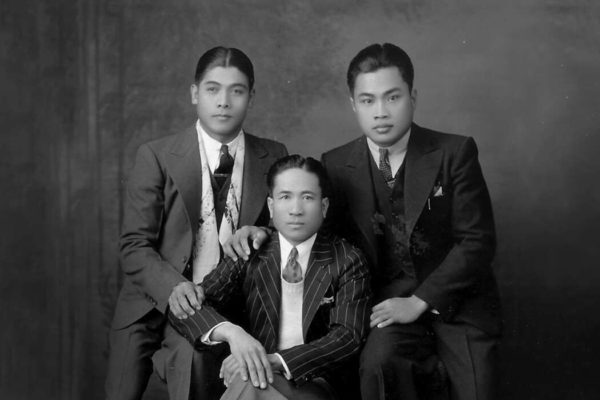A recent poll suggests that many Americans think that Asian Americans are more loyal to their country of origins than to the United States. In contrast, a blog post from the JSTOR Daily describes a time when Asian Americans immigrants seemed more hip and more American than the Americans born in the US.
As a result of being colonized by the US, Filipinos coming to the US during the 1930’s were very familiar with American culture and fashion. LA Times writer Maddin Malone talked about this in 1938:
The little brown men from the Philippines [sic] are two or three years ahead of the styles and the well dressed American in a few seasons will be wearing what they are wearing down in Los Angeles and Main streets now.
Despite working as farm workers, these Filipino Americans known as the Manongs (from “manong” meaning “older brother”) would buy suits in the latest fashions and wear them around town and in dance halls. Apl.de.ap‘s Bebot (Generation 1) music video shows a stylized version of the slick outfits and activity in these dance halls. Ironically, being fashion forward and culturally aware of American trends contributed to anti-Filipino riots, according to some:
The Filipinos got into trouble at Watsonville because they wore ‘sheiker’ clothes, danced better and spent their money more lavishly than their Nordie fellow farm hands.
Then, as now, being a model minority can still get you beaten up.
One custom suit maker that catered to the Manongs was Macintosh Studios. The picture above is taken from that SFGate article. The article also mentions a sociologist, Paul Cressey, who in 1932 studied taxi dance halls frequented by custom suit wearing Filipino men. Cressey is quoted as saying:
the young Filipino in this country is, from the point of view of some people, too readily Americanized
You can read more about this subject in the paper “Filipinos are the Dandies of the Foreign Colonies”: Race, Labor Struggles, and the Transpacific Routes of Hollywood and Philippine Films, 1924–1948 and in Paul Cressey’s study The Taxi-Dance Hall (institutional license required).









